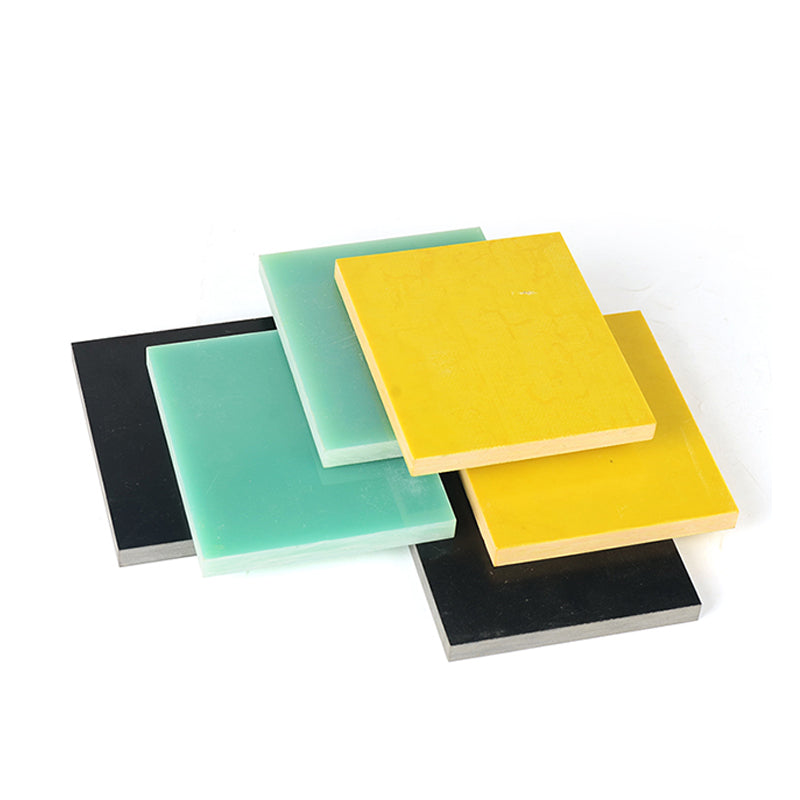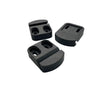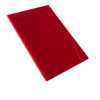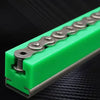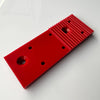What is Polypropylene and Why is it Useful?
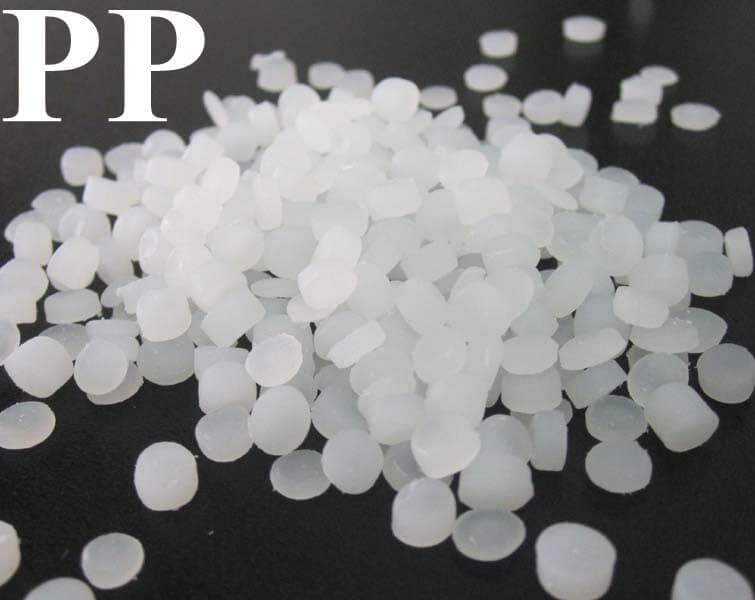
Polypropylene (PP) is a type of plastic that has many applications in various industries and products. But what exactly is polypropylene, how is it made, and what are its advantages? In this article, we will explore the properties, types, uses, and benefits of this versatile material.
🎉🎉🎉Limited Time Offer Use code: QR4GNY08SHVR at checkout and enjoy a special discount on your entire order! 👉 PP plastic
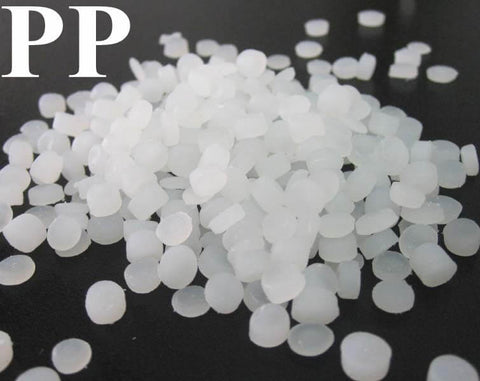
What is Polypropylene?
Polypropylene is a thermoplastic polymer, which means it can be melted and reshaped multiple times. It is made from propylene monomer, a hydrocarbon molecule derived from petroleum or natural gas. Polypropylene belongs to the group of polyolefins, which are plastics that have only carbon and hydrogen atoms in their structure. Polypropylene is partially crystalline and non-polar, which means it has a regular and ordered arrangement of molecules and does not have positive or negative charges on its surface
Polypropylene has some remarkable properties that make it suitable for many applications. Some of these properties are:
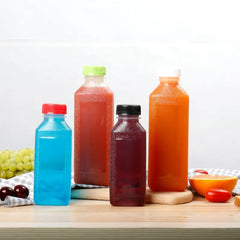
- Low density: Polypropylene is the lightest among all commodity plastics, with a density of 0.895-0.93 g/cm3. This means it can produce more parts with less weight and save material costs
- High heat resistance: Polypropylene can withstand temperatures up to 160°C (320°F), which makes it ideal for food packaging that can be heated in a microwave. It also has good thermal stability and does not degrade easily when exposed to heat
- Chemical resistance: Polypropylene is resistant to most acids, bases, solvents, oils, and fats. It does not react with water or alcohol and does not absorb moisture. It also has good resistance to oxidation and UV radiation
- Mechanical strength: Polypropylene has high tensile strength, stiffness, and impact resistance. It can endure repeated bending, twisting, and stretching without breaking or deforming. It also has good abrasion resistance and low friction coefficient
Types of Polypropylene
Polypropylene can be classified into different types based on its molecular structure, which affects its properties and performance. The main types of polypropylene are:
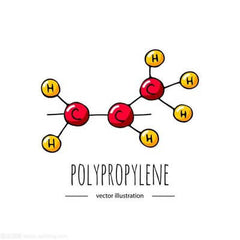
- Isotactic polypropylene: This is the most common type of polypropylene, which has all the methyl groups (CH3) attached to the same side of the carbon backbone. This arrangement creates a high degree of crystallinity and results in a stiff and strong material that is resistant to creep (deformation under stress). Isotactic polypropylene is used for rigid products such as pipes, containers, crates, etc
- Syndiotactic polypropylene: This type of polypropylene has the methyl groups attached alternately to opposite sides of the carbon backbone. This arrangement creates a lower degree of crystallinity and results in a softer and more flexible material that has better clarity and transparency. Syndiotactic polypropylene is used for films, sheets, fibers, etc
- Atactic polypropylene: This type of polypropylene has the methyl groups attached randomly to either side of the carbon backbone. This arrangement creates a very low degree of crystallinity and results in a rubbery and sticky material that has poor mechanical properties. Atactic polypropylene is not used as a standalone product but as an additive or modifier for other plastics or rubber
- Copolymer polypropylene: This type of polypropylene is produced by copolymerizing propylene with other monomers such as ethylene or butene. This process creates different types of copolymers such as random copolymers, block copolymers, or impact copolymers. These copolymers have different properties than homopolymer polypropylene depending on the type and proportion of comonomer used. For example, random copolymers have improved clarity and flexibility; block copolymers have improved impact strength; and impact copolymers have improved toughness and durability. Copolymer polypropylene is used for products that require a balance of properties such as automotive parts, appliances, toys, etc
What Can You Do With Polypropylene?
Polypropylene is a super versatile plastic that you can find in many things around you. You can shape it in different ways, mix it with other materials, and make it do different things. Here are some of the common things that polypropylene can do for you:
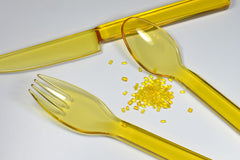
- Keep your food fresh and safe: Polypropylene is great for food packaging because it keeps out moisture, oxygen, and smells. It also doesn’t melt or leak when you heat it up in the microwave. You can use polypropylene containers for your yogurt, butter, ketchup, and more.
- Help you heal and stay healthy: Polypropylene is friendly to your body and can resist germs and chemicals. It can also handle high temperatures and radiation without breaking down. You can use polypropylene devices for your surgery, implants, injections, stitches, and more.
- Make your home cozy and stylish: Polypropylene is light, durable, and easy to clean. It also doesn’t fade or wrinkle when exposed to sunlight or water. You can use polypropylene fabrics for your carpets, rugs, furniture, clothes, diapers, and more.
- Enhance your car’s performance and appearance: Polypropylene is strong, tough, and stable. It also doesn’t expand or shrink when it gets hot or cold. You can use polypropylene parts for your bumpers, dashboards, doors, fuel tanks, and more.
Why Should You Choose Polypropylene?
Polypropylene is not only a useful plastic but also a safe and eco-friendly one. You can use it without worrying about harming yourself or the environment. Here are some of the reasons why polypropylene is a good choice for you:
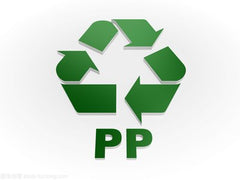
- It’s BPA-free: You may have heard of BPA, a chemical that can leak into your food or water and mess up your hormones, fertility, or health. Well, you don’t have to worry about that with polypropylene. Polypropylene doesn’t contain BPA or any other harmful chemicals. It’s one of the safest plastics for human use.
- It’s recyclable: You may also have heard of the plastic pollution problem, where tons of plastic waste end up in landfills or oceans and harm wildlife and ecosystems. Well, you can help reduce that problem by recycling polypropylene. Polypropylene can be easily recycled and reused for making new products. You can identify it by the number 5 inside the recycling symbol. Recycling polypropylene reduces waste and saves energy and resources.
- It’s low impact: You may also have heard of the greenhouse effect, where gases like carbon dioxide trap heat in the atmosphere and cause global warming and climate change. Well, you can help lower that effect by using polypropylene. Polypropylene has a lower environmental impact than other plastics because it requires less energy and water to produce and emits less greenhouse gases and pollutants during its life cycle. It also degrades faster than other plastics in landfills or oceans.
So, what have we learned about polypropylene? We’ve learned that it’s a type of plastic that can do many things for us. It’s made from propylene monomer and has different types based on its structure. It has amazing properties like low density, high heat resistance, chemical resistance, and mechanical strength. It’s also a safe and eco-friendly plastic that is BPA-free, recyclable, and low impact.
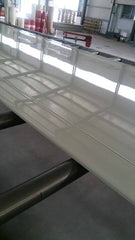
We hope you had fun reading this article and discovering more about polypropylene.
If you are interested in using Polypropylene (PP) products or would like more information, please do not hesitate to contact us. We would be happy to be disturbed and help you with your needs. Do you need a free quote or help with any questions or materials?
🎉🎉🎉Limited Time Offer Use code: QR4GNY08SHVR at checkout and enjoy a special discount on your entire order! 👉 PP plastic
Our website: www.beeplastic.com
Click to contact: Polypropylene (PP)
-
Posted in
beeplastic, plastic, polypropylene, recycling, sustainability

